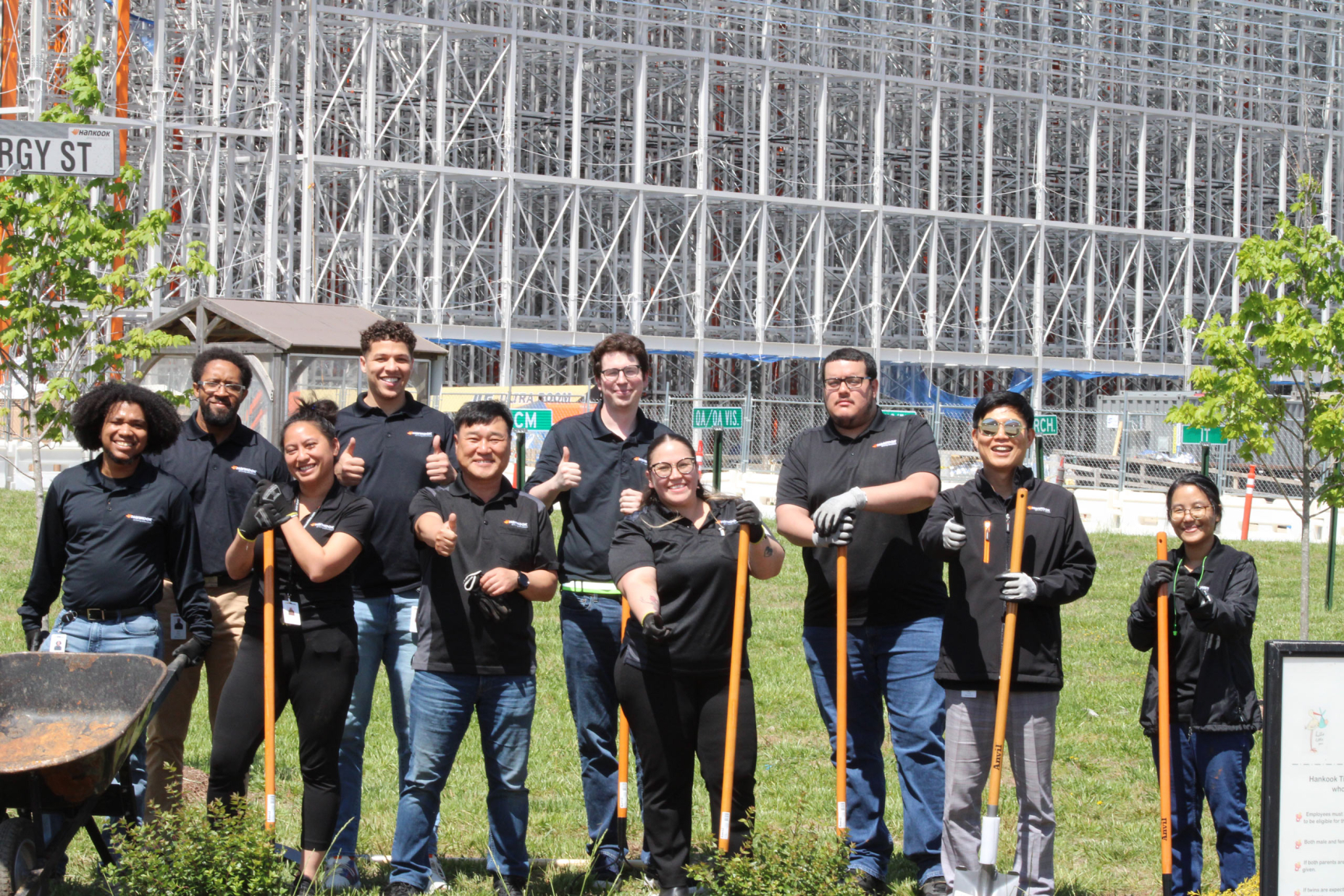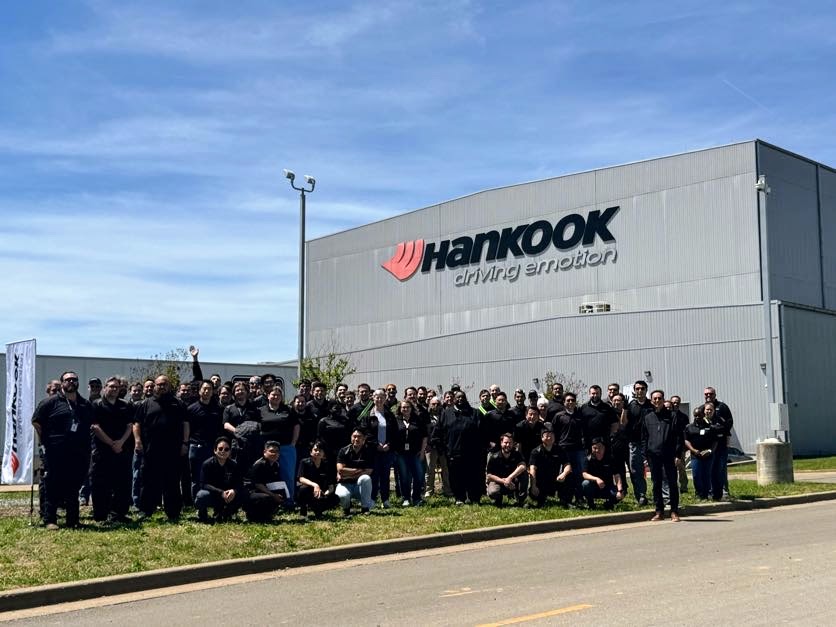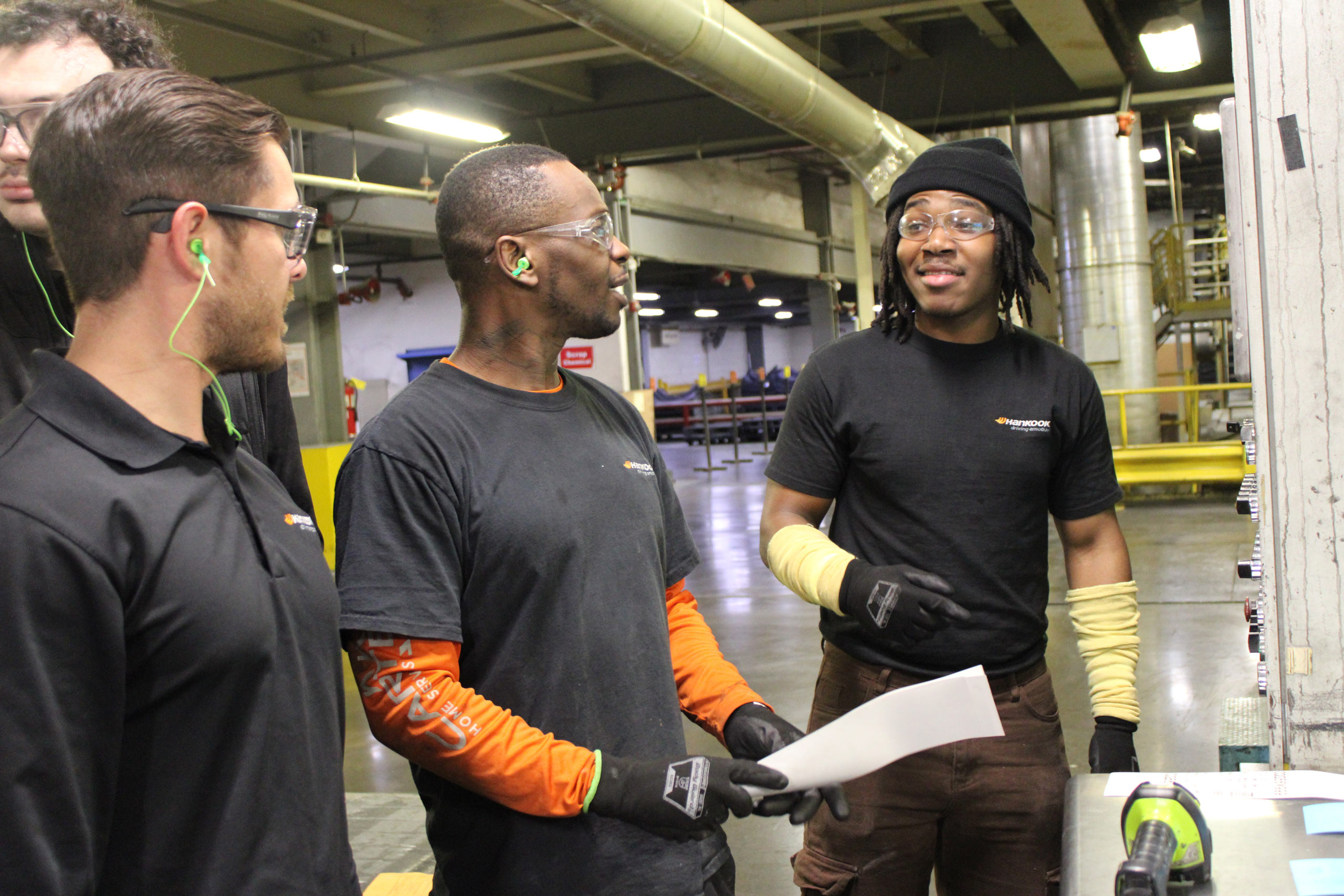
We’re in this together, now and forever
At Hankook, we’re committed to building a better future by working directly with our team—no middlemen needed, ever.
One Team. One Future.
We’re growing, investing, and listening—together.
At Hankook, we believe in working directly with our employees. We’re growing fast, and we’re proud of the work you do every day to make that possible. We don’t believe a union is needed to make Hankook a great place to work.
That’s because we believe in:
- A safe working environment.
- Open, honest communication.
- Listening to your concerns and acting on them.
- Treating everyone fairly and with respect.
We’re here to build a future side by side—with you.
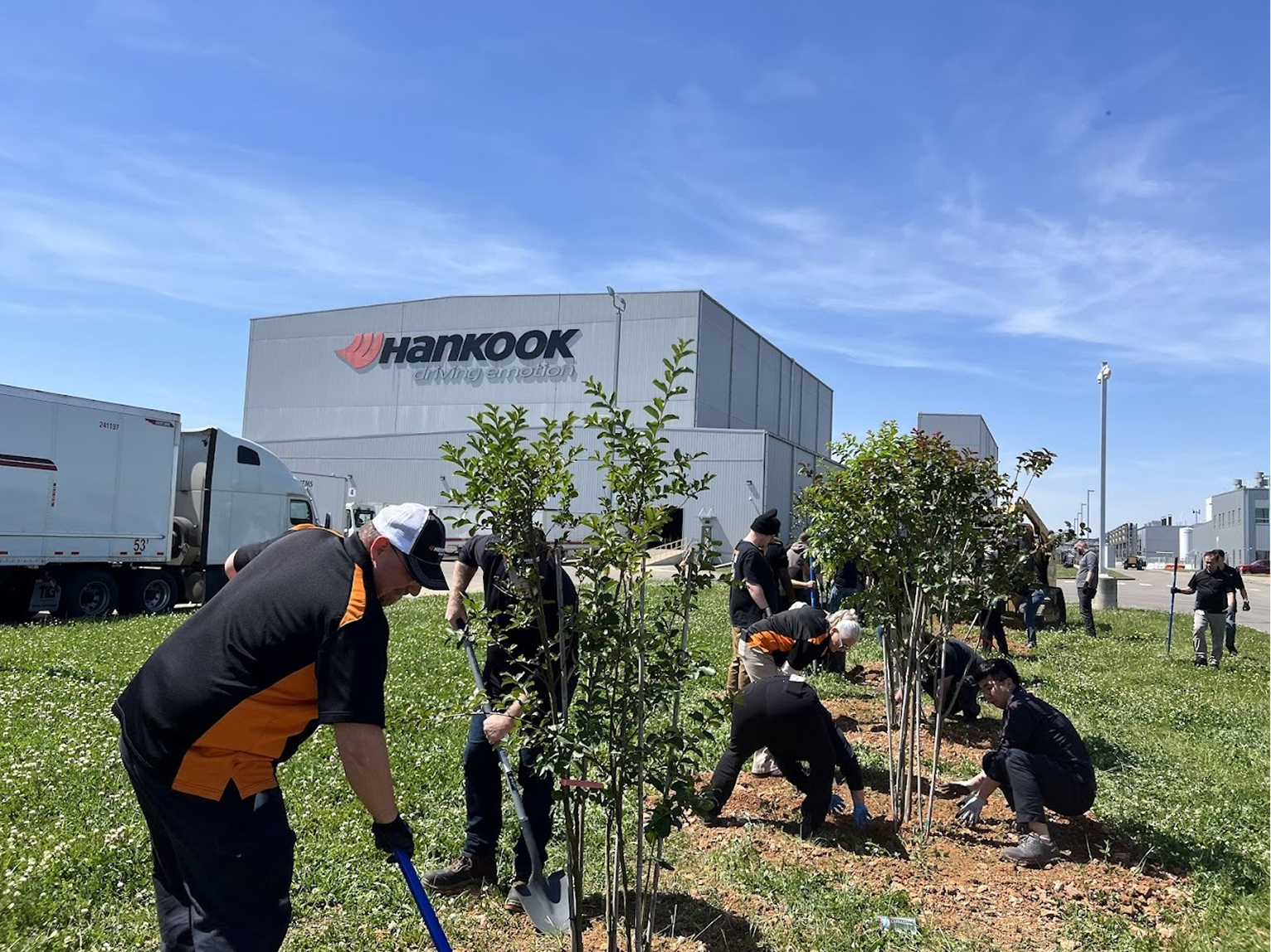
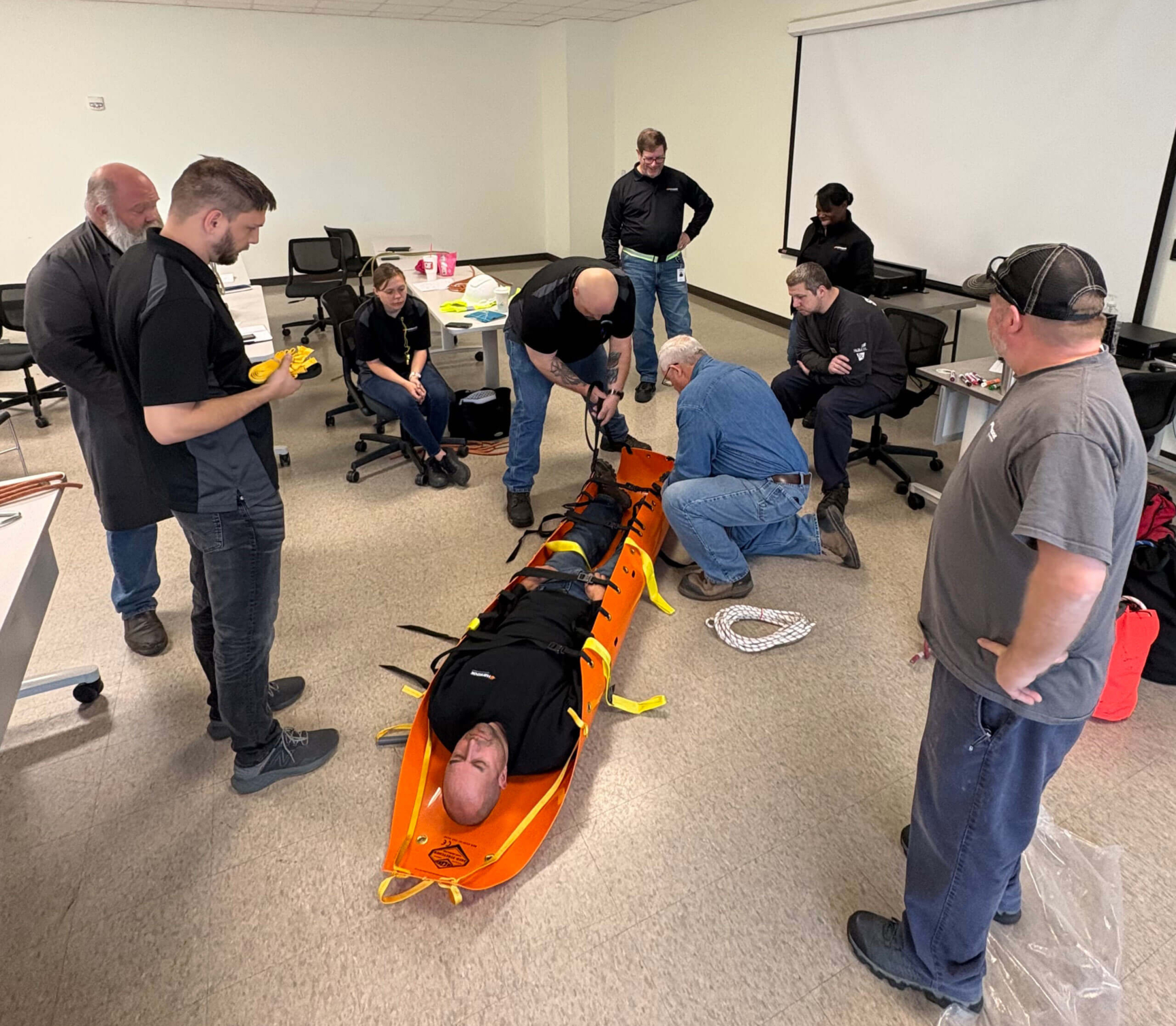
Our Safety Commitment
Safety is a big deal to us. Whether you’re a team member, contractor, or just visiting, we want you to feel confident that your well-being comes first. Our safety team is on it 24/7—always here to keep things running smoothly and safely. They’re fully trained, always looking for ways to improve, and they genuinely care about keeping everyone safe. Your feedback helps us get better, so don’t hesitate to speak up.
Why we believe staying union-free is better:
- A union won’t solve our challenges—it adds complexity.
- It could make it harder to address your concerns directly.
- Union dues come out of your paycheck, with no guarantees in return.
- You’d lose the ability to speak for yourself—someone else negotiates on your behalf.
We want you to:
- Keep your hard-earned money.
- Maintain your individual voice.
- Get real results through real conversations—not through a third party.
A Union Can Promise Anything—but Guarantee Nothing
Here’s what collective bargaining really means.
Unions talk a lot about better wages and benefits. But here’s the truth: nothing is guaranteed. Collective bargaining can result in more, less, or exactly what you have now. Negotiations can take months—sometimes years—and may never lead to a contract.
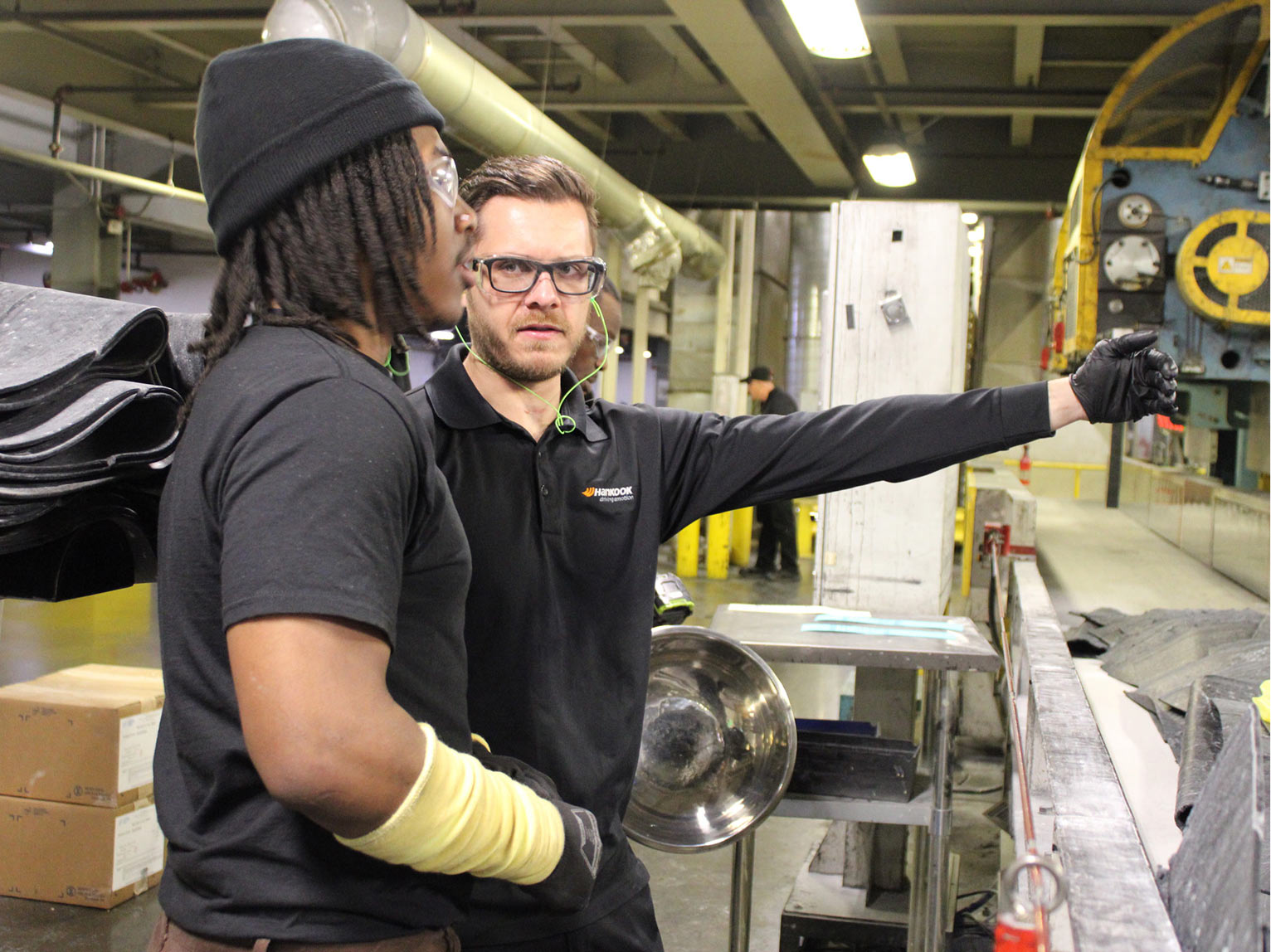
Do You Want a Stranger Negotiating for You?
When a union is voted in, they speak for everyone—even those who didn’t vote for them. That means you lose your direct access to management.
You also pay monthly dues—and in 2024, the United Steelworkers made over $626 million from workers’ paychecks with no disbursements back to members.
There’s also a history of corruption: federal investigations into fraud and misuse of union funds are public record.
Signing a Union Card
Is a Big Deal
Don’t sign without knowing the risks.
- If 30% of employees sign, a union can request an election.
- If a majority signs, they can bypass the election entirely.
- Union cards can be collected in-person or digitally—including through text or social media.
Even something that looks harmless—like a sign-up form—can count as a union authorization card.
What Is a Union, Really?
Unions are businesses that collect money in exchange for representing employees. Once in, they become your exclusive representative, meaning you can no longer speak directly with your employer about wages or benefits.
We want you to:
- Keep your hard-earned money.
- Maintain your individual voice.
- Get real results through real conversations—not through a third party.
Real Examples Show the Risks
Layoffs Despite a Union Contract
Despite a four-year contract with promises of better pay and benefits, Goodyear laid off 850 employees at its Virginia plant in 2024.
At Hankook, we’ve maintained stable employment and continue investing in our future—no layoffs, just growth.
A Plant Closure Under Union Representation
Bridgestone’s LaVergne, TN facility, represented by the USW, is closing—leaving 700 people without jobs.
In contrast, Hankook is expanding. We’ve grown our operations and added positions. Our direct relationship with employees helps us remain flexible and competitive.
What Does Unionization Mean for You?
Get the facts so you can decide for yourself.
Who pays for a union?
You do. Dues are taken from your paycheck every month.
Can a union guarantee better pay or benefits?
No. Everything is up for negotiation, and nothing is guaranteed. You could end up with more, the same, or less.
Will I have more job security?
No. Only business performance and demand can create job stability—not union contracts.
Will I have more of a voice?
Actually, you’d lose direct access to management. Union stewards—not managers—decide how and when to act on your concerns.
How long does it take to get a contract?
On average, 465 days—and sometimes much longer. Some companies, like Starbucks, still haven’t finalized contracts years later.
Will I have to go on strike?
If the union calls one, yes. You may not be paid and could lose health insurance. And the company can legally replace striking workers.
We’re Already Doing the Work
Hear from your coworkers.
Many of your fellow team members believe we’re better off working directly together—without a union in the middle.
They value the open-door policy, fast problem-solving, and real conversations with leadership.
Jeff Swan
Substation Technician
LaTaya “LT” Clemon
Group Leader
Saymantha Grotschel
Building Local Master
Brent Russle
Unit Manager
Quynerria Davis
Maintenance Technician
Matthew Hardy
Maintenance Technician
LT
Unit Manager
Brandy
Building Local Master
Momo
Curing Line Lead
